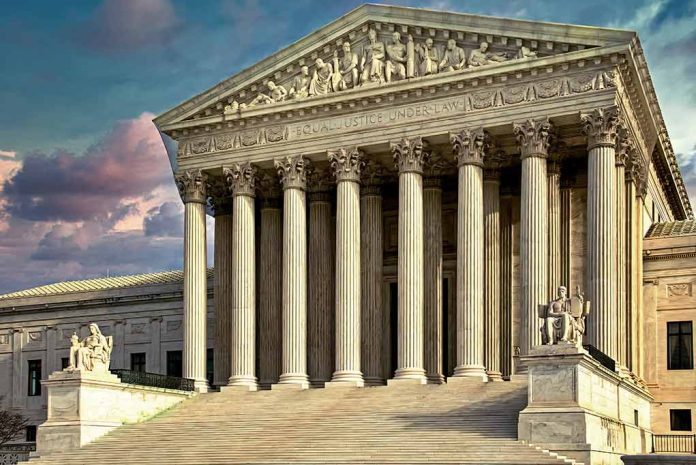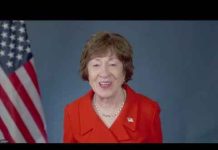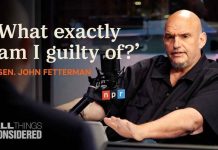
Seattle police officers who attended Trump’s January 6 rally will have their names revealed after the Supreme Court rejected their plea for anonymity, raising serious concerns about targeted harassment of law enforcement who express conservative political views.
Key Takeaways
- The Supreme Court declined to intervene in a Washington state court decision requiring the disclosure of Seattle police officers’ names who attended Trump’s January 6 “Stop the Steal” rally.
- Despite being cleared of any wrongdoing in an internal investigation, the officers now face potential harassment and career damage for merely exercising their First Amendment rights.
- Justices Alito and Thomas, while not blocking the disclosure, expressed concern that the ruling threatens constitutional protections for anonymous political expression.
- The case highlights the growing tension between government transparency demands and the protection of law enforcement officers’ right to privately hold political views.
Supreme Court Denies Protection for Conservative Officers
In a troubling development for law enforcement personnel who hold conservative views, the Supreme Court has declined to block a Washington state court ruling that will expose the identities of Seattle police officers who attended President Trump’s January 6, 2021 “Stop the Steal” rally. These officers, who were already cleared of any wrongdoing in a departmental investigation, sought emergency relief to prevent their names from being released through public records requests. Despite clear constitutional concerns, the Court rejected their application without providing an explanation for its decision.
The officers, identified only as “John Does 1, 2, 4 and 5” in court documents, had legitimate fears about potential retaliation and harassment if their attendance at a lawful political rally becomes public knowledge. The Seattle Police Department’s internal investigation confirmed that these officers did not participate in any unlawful activities at the Capitol, yet they will now face public scrutiny and possible targeting simply for exercising their constitutional rights to peacefully assemble and support President Trump.
“The Court’s denial of this application, however, should not be read as an endorsement of the decision below or its interpretation of the First Amendment,” he wrote. “We have held that the First Amendment provides a measure of protection for the right to engage in anonymous political expression,” said Justice Samuel A. Alito Jr, Washington Times.
Conservative Justices Express Concerns
While the Court as a whole declined to intervene, Justices Samuel Alito and Clarence Thomas made it clear that they believe serious First Amendment issues are at stake. Justice Alito specifically noted that the Court’s refusal to block the disclosure should not be interpreted as support for the Washington Supreme Court’s constitutional analysis. This signals that at least some members of the nation’s highest court recognize the dangerous precedent being set for public employees who exercise their right to political expression.
The Washington Supreme Court’s reasoning was particularly troubling, as it suggested citizens have no expectation of privacy when attending public political events unless they take specific measures to remain anonymous. This standard effectively punishes individuals for openly exercising their constitutional rights and creates a chilling effect on free speech, especially for those in law enforcement who now must fear professional consequences for their personal political beliefs.
“It reasoned that the applicants had no protected right regarding the fact that they attended public events in Washington on January 6 because they failed to produce any evidence demonstrating they took measures to attend the [January 6] rally anonymously,” said Justice Samuel Alito, Courthouse News.
Double Standard for Conservative Law Enforcement
This case highlights the growing double standard applied to conservative law enforcement officers across the country. While leftist activists who participate in far more disruptive protests often receive protection and privacy, these Seattle officers face public exposure for merely attending a peaceful rally in support of election integrity. The procedural reasoning offered by Justice Alito—that the officers hadn’t adequately demonstrated imminent irreparable harm—provides little comfort to those whose careers and personal safety may soon be jeopardized.
The Washington courts’ handling of this case reveals the increasingly hostile environment facing conservative public servants. These officers, who were exercising their First Amendment rights on their own time and were cleared of any misconduct, will now potentially face harassment campaigns, doxxing, and professional retaliation. The Supreme Court’s decision not to intervene sends a chilling message to law enforcement nationwide: your political beliefs can and will be used against you if they don’t align with progressive orthodoxy.
“The mandate of the Washington Supreme Court was issued more than a month ago, and the applicants have not adequately explained why at this point they still face an imminent danger of irreparable harm,” said Justice Samuel Alito, Courthouse News.
Dangerous Precedent for Public Servant Privacy
This ruling sets a dangerous precedent that threatens the privacy and First Amendment rights of all public employees. By allowing the forced disclosure of these officers’ names, the courts have effectively endorsed the notion that government workers forfeit their right to anonymous political expression. This creates an environment where public servants must choose between their careers and their constitutional right to participate in the political process—a choice no American should ever have to make, especially those who risk their lives to protect our communities.
“Our denial of review in this case should not be taken as manifesting any degree of support for the proposition that the disclosure at issue in this case is consistent with the First Amendment,” said Justice Samuel Alito, Courthouse News
The Seattle officers’ fight represents a broader battle for privacy rights and free speech in an increasingly intolerant political climate. When law enforcement officers face public exposure and potential harassment simply for attending a rally supporting President Trump, it signals a troubling erosion of fundamental constitutional protections. Americans across the political spectrum should be concerned about this dangerous precedent that puts political conformity above individual rights and threatens the personal security of those who serve our communities.





